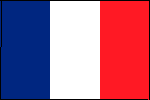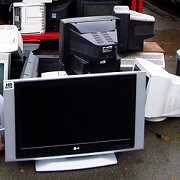We use cookies to personalize content and advertisements, to offer social media functions and to analyze access to our website.
You can revoke the given consent at any time. You can find further information in our Privacy Policy.
Feb 2016
On 24, Feb 2016 | In Events | By Alisa Maier
Feb 2016
On 16, Feb 2016 | In News @en | By Alisa Maier
 There have been long-lasting discussions to collect copyright levies on cloud storage. Now there is a draft amendment to the Copyright Act substantiating exactly this matter in France. For the first time not only physical products like smartphones, hard disks or blank CDs would be imposed with a levy, but also online services.
To date, the scope of the products as well as the amount of the levy is determined by storage capacity and the actual usage. In practice, the usage appears to be shifting towards storing files remotely and not on the local hard drive, not to mention the copying on blank CDs. The more cloud services are used and the more files are stored online, the more questions about the suitability of the existing levy system arise. In France the future of private copying, i. e. the adaptation of this system is in discussion since years. Already in 2013, Pierre Lescure wrote a comprehensive report, commissioned by the French Ministry of Culture, and recommended to extend the levy system in the direction of online services («Contribution aux politiques culturelles à l’ère numérique»).
According to the Lescure-Report the existing scope should be extended to devices providing access to the internet in a first step. The storage capacity is not foregrounded anymore. Game consoles, for instance, have been taken into consideration and are now dutiable in many countries. Pursuant to this, the extension to online services seems to be the logical consequence. This arises in the current draft legislation which has been presented to the French senate.
There have been long-lasting discussions to collect copyright levies on cloud storage. Now there is a draft amendment to the Copyright Act substantiating exactly this matter in France. For the first time not only physical products like smartphones, hard disks or blank CDs would be imposed with a levy, but also online services.
To date, the scope of the products as well as the amount of the levy is determined by storage capacity and the actual usage. In practice, the usage appears to be shifting towards storing files remotely and not on the local hard drive, not to mention the copying on blank CDs. The more cloud services are used and the more files are stored online, the more questions about the suitability of the existing levy system arise. In France the future of private copying, i. e. the adaptation of this system is in discussion since years. Already in 2013, Pierre Lescure wrote a comprehensive report, commissioned by the French Ministry of Culture, and recommended to extend the levy system in the direction of online services («Contribution aux politiques culturelles à l’ère numérique»).
According to the Lescure-Report the existing scope should be extended to devices providing access to the internet in a first step. The storage capacity is not foregrounded anymore. Game consoles, for instance, have been taken into consideration and are now dutiable in many countries. Pursuant to this, the extension to online services seems to be the logical consequence. This arises in the current draft legislation which has been presented to the French senate.
Feb 2016
On 04, Feb 2016 | In Events | By Alisa Maier
Jan 2016
On 28, Jan 2016 | In Copyright Levies, News @en | By Alisa Maier
 A new register for companies who have to pay copyright levies for mobile phones, computer and storage media will be established in Germany. Yet it is going to be even more powerful as only compliant companies are listed in a so-called “white list”. Vice versa, not mentioned companies are pilloried for not paying copyright levies (appropriately). The responsible collecting society ZPÜ will publish (here) all names and addresses of companies fulfilling their obligations.
For a long time collecting societies were accused for not covering the bulk of the market for recordable electronic products and storage media. Hence, many companies are not reporting sales figures and are not paying established tariffs. Apparently this is true.
However, according to the tariff agreement for mobile phones and tablets from December 2015, collecting societies can now assert their claims (by contract) comprehensively. The “white list” is accompanied by well-directed research, e. g. in the manufacturer register for take-back obligations of WEEE. Other EU Member States like France and Poland approach in a similar vein. In Switzerland there is even a so-called “black list” in the environmental sector.
We are happy to explain all regulation resulting from the new general agreements for copyright levies in Germany. Feel free to contact us: info@1cc-consulting.com
A new register for companies who have to pay copyright levies for mobile phones, computer and storage media will be established in Germany. Yet it is going to be even more powerful as only compliant companies are listed in a so-called “white list”. Vice versa, not mentioned companies are pilloried for not paying copyright levies (appropriately). The responsible collecting society ZPÜ will publish (here) all names and addresses of companies fulfilling their obligations.
For a long time collecting societies were accused for not covering the bulk of the market for recordable electronic products and storage media. Hence, many companies are not reporting sales figures and are not paying established tariffs. Apparently this is true.
However, according to the tariff agreement for mobile phones and tablets from December 2015, collecting societies can now assert their claims (by contract) comprehensively. The “white list” is accompanied by well-directed research, e. g. in the manufacturer register for take-back obligations of WEEE. Other EU Member States like France and Poland approach in a similar vein. In Switzerland there is even a so-called “black list” in the environmental sector.
We are happy to explain all regulation resulting from the new general agreements for copyright levies in Germany. Feel free to contact us: info@1cc-consulting.com
Jan 2016
On 14, Jan 2016 | In Events | By Alisa Maier
Dec 2015
On 22, Dec 2015 | In News @en | By Alisa Maier
 The European Commission has recently published the long awaited second version of its Circular Economy Package. The first package had been published by the former Barroso Commission and had been withdrawn by the Juncker Commission shortly after taking office. However the Juncker Commission had promised to provide a new, more ambitious package by the end of 2015.
With the new Circular Economy Package, the Commission aims to increase the recycling and preparation for re-use of municipal waste in general as well as packaging waste, harmonise the calculation of collection and recycling targets throughout the Member States and reduce the landfilling of municipal waste.
For the first time, the Commission also aims to define minimum common requirements for extend producer responsibility schemes. Besides that, the package includes measures in the Ecodesign working plan for 2015-2017 to promote reparability, durability and recyclability of products, in addition to the already planned energy efficiency measures. Electrical and electronic products will be a major target for these actions.
A strategy on plastics and a report on critical raw materials shall follow in 2017.
Overall, the Commission targets to carry out all necessary actions for a regulatory framework for the development of a circular economy before 2020.
The full text of the Action Plan and the legislative proposals can be found on the Commission website: http://ec.europa.eu/environment/circular-economy/index_en.htm
The European Commission has recently published the long awaited second version of its Circular Economy Package. The first package had been published by the former Barroso Commission and had been withdrawn by the Juncker Commission shortly after taking office. However the Juncker Commission had promised to provide a new, more ambitious package by the end of 2015.
With the new Circular Economy Package, the Commission aims to increase the recycling and preparation for re-use of municipal waste in general as well as packaging waste, harmonise the calculation of collection and recycling targets throughout the Member States and reduce the landfilling of municipal waste.
For the first time, the Commission also aims to define minimum common requirements for extend producer responsibility schemes. Besides that, the package includes measures in the Ecodesign working plan for 2015-2017 to promote reparability, durability and recyclability of products, in addition to the already planned energy efficiency measures. Electrical and electronic products will be a major target for these actions.
A strategy on plastics and a report on critical raw materials shall follow in 2017.
Overall, the Commission targets to carry out all necessary actions for a regulatory framework for the development of a circular economy before 2020.
The full text of the Action Plan and the legislative proposals can be found on the Commission website: http://ec.europa.eu/environment/circular-economy/index_en.htm
Dec 2015
 On 17 of December the European Chemicals Agency (ECHA) has added 5 new Substances of Very High Concern (SVHC) to the REACH Candidate List. The Candidate List now contains 168 substances.
The 5 new entries refer to:
Nitrobenzene (EC No. 202-716-0), which has been added to the list due to its reproductive toxicity properties. The substance is used in the manufacturing process of other substances, e.g. as an intermediate for further chemical processing.
2,4-di-tert-butyl-6-(5-chlorobenzotriazol-2-yl)phenol (UV-327) (EC No. 223-383-8) and 2-(2H-benzotriazol-2-yl)-4-(tert-butyl)-6-(sec-butyl)phenol (UV-350) (EC No. 253-037-1), which were added to the list because of their very persistent and very bioaccumulative properties. Both substances are used as UV-protection agents in coatings, plastics, rubber and cosmetics.
1,3-propanesultone (EC No. 214-317-9), which has been added to the list due to its carcinogenic properties. This SVHC substance is used as an electrolyte fluid of lithium ion batteries.
Perfluorononan-1-oic-acid and its sodium and ammonium salts (EC No. 206-801-3), which has been added to the list due to its persistent, bioaccumulative, toxic and reproductive toxicity properties. The substance is used as a: processing aid for fluoropolymer manufacture, lubricating oil additive, surfactant for fire extinguishers, cleaning agent, textile antifouling finishing agent, polishing surfactant, waterproofing agents and in liquid crystal display panels.
More information on http://echa.europa.eu/view-article/-/journal_content/title/five-new-substances-of-very-high-concern-added-to-the-candidate-list
On 17 of December the European Chemicals Agency (ECHA) has added 5 new Substances of Very High Concern (SVHC) to the REACH Candidate List. The Candidate List now contains 168 substances.
The 5 new entries refer to:
Nitrobenzene (EC No. 202-716-0), which has been added to the list due to its reproductive toxicity properties. The substance is used in the manufacturing process of other substances, e.g. as an intermediate for further chemical processing.
2,4-di-tert-butyl-6-(5-chlorobenzotriazol-2-yl)phenol (UV-327) (EC No. 223-383-8) and 2-(2H-benzotriazol-2-yl)-4-(tert-butyl)-6-(sec-butyl)phenol (UV-350) (EC No. 253-037-1), which were added to the list because of their very persistent and very bioaccumulative properties. Both substances are used as UV-protection agents in coatings, plastics, rubber and cosmetics.
1,3-propanesultone (EC No. 214-317-9), which has been added to the list due to its carcinogenic properties. This SVHC substance is used as an electrolyte fluid of lithium ion batteries.
Perfluorononan-1-oic-acid and its sodium and ammonium salts (EC No. 206-801-3), which has been added to the list due to its persistent, bioaccumulative, toxic and reproductive toxicity properties. The substance is used as a: processing aid for fluoropolymer manufacture, lubricating oil additive, surfactant for fire extinguishers, cleaning agent, textile antifouling finishing agent, polishing surfactant, waterproofing agents and in liquid crystal display panels.
More information on http://echa.europa.eu/view-article/-/journal_content/title/five-new-substances-of-very-high-concern-added-to-the-candidate-list
Dec 2015
On 08, Dec 2015 | In Copyright Levies, Events | By Alisa Maier
Dec 2015
On 01, Dec 2015 | In Events | By Alisa Maier
 The implementation of the EU WEEE Directive (2012/19/EU) is accomplished in most of the EU Member Countries. Germany’s transposition, the so called new ElektroG, has entered into force on October 24, 2015. The new ElektroG introduces some major changes to producers’ obligations. Furthermore, Stiftung ear has adapted the registration procedures to meet the new requirements. Globally acting companies producing or selling EEE across Europe face the challenge to understand the impact of the new legal requirements on their business in all their target markets.
Stefanie Enders, Legal Counsel at 1cc GmbH, will provide an insight into the main elements of the new ElektroG for German and foreign producers, and how these are put into practice across Europe.
Please below further details of these webinars:
Date: December 4, 2015
Time: 10:00 a.m. CET
Language: German
Sign up: https://attendee.gotowebinar.com/register/609880779012798978
Date: December 9, 2015
Time: 5:30 p.m. CET
Language: English
Sign up: https://attendee.gotowebinar.com/register/208169808087001602
Participation in these 1cc Webinars is free. However, the number of participants in each webinar will be limited to 20 attendees.
The implementation of the EU WEEE Directive (2012/19/EU) is accomplished in most of the EU Member Countries. Germany’s transposition, the so called new ElektroG, has entered into force on October 24, 2015. The new ElektroG introduces some major changes to producers’ obligations. Furthermore, Stiftung ear has adapted the registration procedures to meet the new requirements. Globally acting companies producing or selling EEE across Europe face the challenge to understand the impact of the new legal requirements on their business in all their target markets.
Stefanie Enders, Legal Counsel at 1cc GmbH, will provide an insight into the main elements of the new ElektroG for German and foreign producers, and how these are put into practice across Europe.
Please below further details of these webinars:
Date: December 4, 2015
Time: 10:00 a.m. CET
Language: German
Sign up: https://attendee.gotowebinar.com/register/609880779012798978
Date: December 9, 2015
Time: 5:30 p.m. CET
Language: English
Sign up: https://attendee.gotowebinar.com/register/208169808087001602
Participation in these 1cc Webinars is free. However, the number of participants in each webinar will be limited to 20 attendees.
Nov 2015